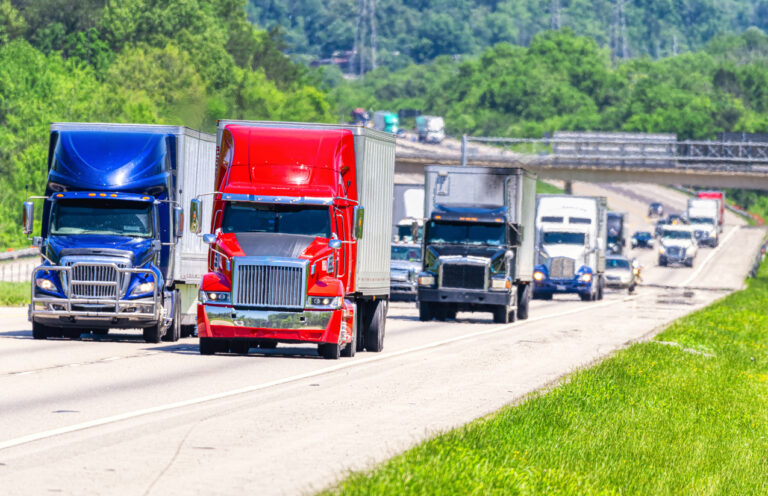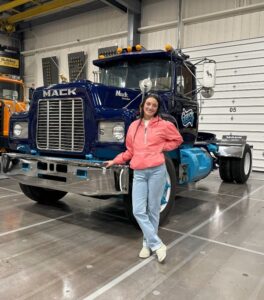In a strongly worded letter to a number of governors and a governor-elect, trucking industry leaders are expressing their concern regarding the Advanced Clean Trucks (ACT) rules.
The group’s concern is that many in the industry stand to lose everything if the concerns are not addressed and that if President-elect Trump reverses course, despite being a strong opponent of ACT in his previous term in office, the industry could face catastrophic impacts.
The letter was jointly issued and signed by Gregory Fulton, president/CEO, Colorado Motor Carriers Association; Kendra Hems, president, Trucking Association of New York; Kevin Weeks, executive director, Trucking Association of Massachusetts; Jana Jarvis, president/CEO, Oregon Trucking Association; Jennifer Blazovic, interim executive director, New Jersey Motor Truck Association; Christopher Maxwell, president/CEO, Rhode Island Trucking Association; Johnny R. Johnson, managing director, New Mexico Trucking Association and Sheri Call, president/CEO, Washington Trucking Association.
The letter in full reads:
“Dear Governors Polis, Healey, Murphy, Lujan Grisham, Hochul, Kotek, McKee, Inslee and Governor-Elect Ferguson:
“On behalf of the trucking industry in each of your respective states, we are writing to express our collective concerns with the Advanced Clean Trucks (ACT) rules, which are set to take effect at the beginning of 2025 and 2027.
“In your letter to the Truck and Engine Manufacturers Association on November 8, 2024, you cite the important role ACT plays in our states’ plans to achieve our greenhouse gas emissions reduction goals and the threat of climate change.
“To be clear, we fully support these goals, and the trucking industry has worked collaboratively with government partners across the country for years to reduce the emissions from heavyduty trucks. In fact, 60 trucks today equal the output of one in 1988, and, since the implementation of clean diesel technology in 1974, pollutants have been reduced by 99 percent. These reductions are in part due to the trucking industry’s partnership with the Environmental Protection Agency (EPA) SmartWay program. The SmartWay program is a publicprivate partnership with the shared goal of reducing overall emissions and greenhouse gases, cutting fuel use, and improving freight sustainability. Our associations and many of our members voluntarily became partners in the SmartWay program and have worked closely with the EPA since the program was launched in 2004. The program has been an outstanding success as SmartWay companies have avoided emitting170 million metric tons of CO2, 2.8 million short tons of NOx, and 115,000 short tons of PM, which helps protect the environment and keep Americans healthy.
“The damage that our industry will incur by implementing ACT on its current rushed timeline will curtail these critical efforts as clean diesel truck availability will become limited, keeping older, heavier polluting trucks on the road. It will also lead to the inevitable loss in jobs and businesses. Rather, we encourage your states to look at an alternative approach, similar to the SmartWay program, which is a voluntary program with a proven record of success and widely supported by the industry. We are asking that the ACT date for implementation be deferred in order to ensure that our dealers and trucking companies are not unduly harmed, and to provide for an opportunity to work together to find a solution that works toward our state’s environmental goals.
“The situation on the ground has changed since ACT was adopted. The extended recovery from the COVID-19 pandemic diminished resources for manufacturers, dealers, and operators alike. The entire supply chain shifted to prioritize essential services and investments. While our industry can adapt and comply with reasonable regulations, ACT has already significantly impacted dealer operations well ahead of the official start date.
“From the West Coast to the East Coast, economic and structural limitations severely limit the American trucking industry. By and large, interstate electric infrastructure is completely lacking. Take New York for example, since ACT’s passage in 2021, not a single publicly available charging station has been built for medium and heavy-duty vehicle charging statewide. And while truck operators in Washington, California, and Oregon appreciate the continued attempt to secure federal funding for an EV truck charging corridor along Interstate 5, the reality is that it will take years to complete. We need this infrastructure now.
“We are also cognizant of a changing political environment. As ACT rules were initially pursued, they met a strong opponent in President Donald Trump’s administration—which passed a 2019 resolution effectively removing California’s legal authority to set vehicle emissions rules and set zero-emission vehicle mandates. By all indications, with President Trump’s history of comments and regulations regarding emissions and electric vehicles, it is within reason to believe his administration will renew his, since lapsed, 2019 resolution and ultimately pull the Clean Air Act waiver from the Environmental Protection Agency. David Heller, Senior VP of Government Affairs for the Truckload Carriers Association (TCA), has already indicated that national groups are prepared to discuss emissions regulations with a new Trump presidency.
“If the Trump administration is only going to reverse course, is it worth the collateral damage of trying to implement these ill-timed and likely fatal regulations? Rather, we stand ready to have meaningful conversations on actions the industry can take today to immediately reduce emissions.
“Trucks are the backbone of our nation’s economy. Communities across the country depend largely on trucks to move their goods. A census bureau report found that, in 2017, the latest year with available data, trucks transported 71.6% of all goods in the United States. This equates to $10.4 trillion. In other words, trucking is the largest single mode form of goods transportation by a longshot. When the trucking industry suffers, so to do all the sectors of the economy that rely on it. Access to critical goods, medicines, and care devices are at-risk. Major infrastructure projects and essential municipal services will be delayed. Even clean energy projects—from solar to wind—won’t move forward without trucks. None of this happens without trucks.
“Right now, dealers across the country are struggling to find a way to navigate this situation. Many will not survive the economic impact of these rules. Many will shut down after being in business for generations. Many will cut jobs. Many will lose everything.
“At our core, the greater American trucking industry supports the goals of ACT. We are not pushing back because we’re opposed to sustainable change. It is possible to work together to develop a commonsense solution which supports each of our states’ business and environmental goals.
“Once we ensure “business-as-usual” for truck operators, dealers, and manufacturers and a true commitment to a shared approach to reducing emissions, then we can take meaningful steps towards getting more electric trucks on the road. Collectively, we welcome the opportunity to sit down to discuss this situation, but let us be clear, we are running out of time.”







I don’t think you are taking a aggressive enough stance on this issue. This is a crisis and is attacking our right to move and ship goods and services around the state and country. It seriously weakens our ability to function and maintain our health and safety. From the inability to transport medication or fix a broken sewer line dumping into the streets or waterways near you. It’s Christmas eve and I don’t have time to fully articulate the importance of this. My family is waiting. Hopefully my truck will not go into limp mode from a emissions malfunction on the way.